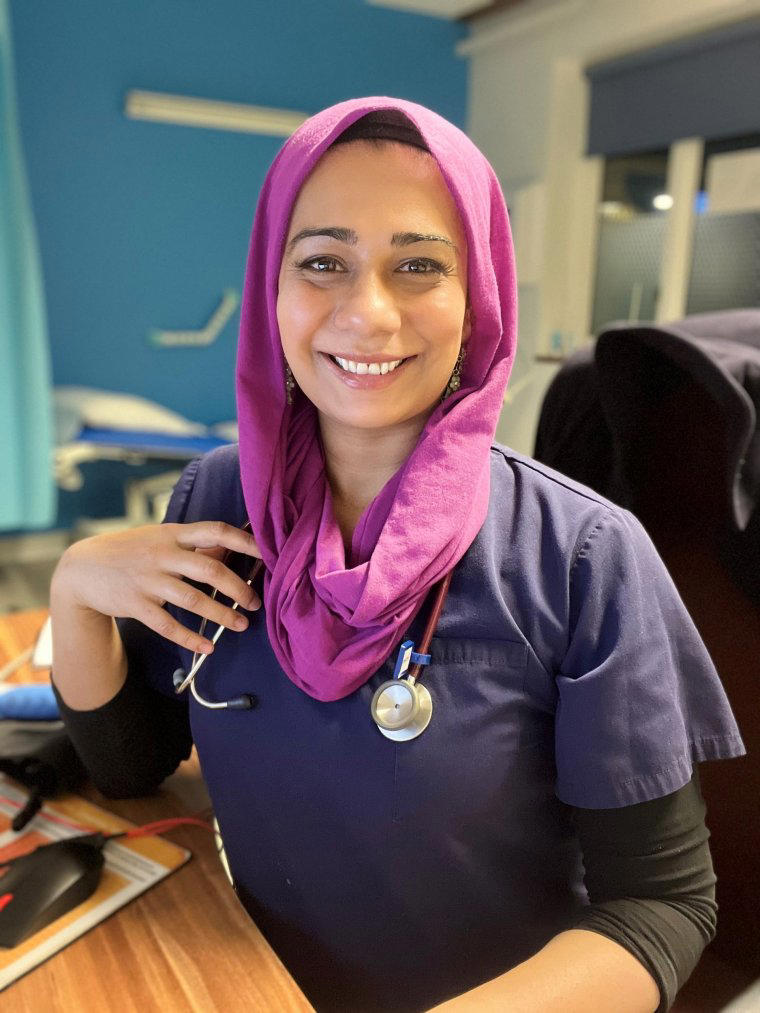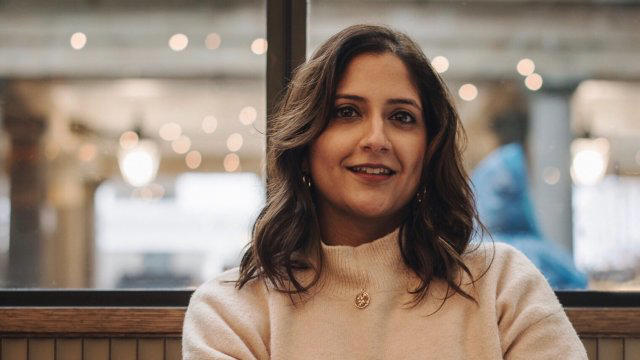







What every woman should know about hormones, the pill and cancer
As women, our reproductive hormones get the blame for lots of things, from weight gain around the menopause to wild mood swings at puberty and certain times of them month. How often have you described yourself as “feeling hormonal” – or, worse, heard another woman being dismissed as “hormonal” when she’s standing up for herself?
Despite this, research from gynaecological cancer charity The Eve Appeal reveals our medical understanding of these important chemical messengers could use some work. A survey published as part of Gynaecological Cancer Awareness Month found that more than a third of UK adults don’t know where oestrogen – a key female reproductive hormone – is produced.
Meanwhile, only one in five were aware of links between oestrogen and womb cancer, and less than one in three knew about its links with ovarian cancer. Further data, seen exclusively by i, revealed widespread confusion about common medications, with more than half of respondents saying they didn’t know whether hormonal contraceptives and hormone replacement therapy (HRT) were implicated in cancer risk.
This confusion, and the anxiety it often sparks, is nothing new but The Eve Appeal’s research – which has previously highlighted women’s lack of awareness about the difference between the vagina and the vulva – shines a light on the gaps in our body literacy. So, what do you really need to know about hormones and cancer risk?
The big O: Oestrogen
Oestrogen is produced in the ovaries and, to a lesser extent, in fat cells. Excess oestrogen can increase the risk of some cancers, including the most common types of breast, womb and ovarian cancer. However, it’s important to remember that cancer is complex, and lots of different factors influence individual risk.
“Cumulative exposure to oestrogen through the lifespan can increase cancer risk in some women. We don’t fully understand why this can affect some women and not others,” explains Professor Annice Mukherjee, a Consultant Endocrinologist at Coventry University.
Your lifetime oestrogen levels can be affected by lots of different variables, including: the age you start your periods; the age you reach menopause; if you have children and how many; if you breastfeed and for how long; how much body fat you have; conditions like polycystic ovary syndrome (PCOS), and so on.
“It’s all quite nuanced and complex. We know there must also be some genetic and environmental factors at play. Alcohol and smoking generally increase the risk of most cancers, including gynaecological cancers, but there are also protective lifestyle factors, like regular exercise, which helps to reduce your risk,” Professor Mukherjee explains.
“We don’t want anyone to panic. It’s about understanding what your risks may be, so you can put that in the context of your own lifestyle and circumstances,” she adds. That doesn’t mean you should rush out and buy a hormone testing kit to check your oestrogen levels though; there’s no evidence at all to suggest this can help you understand your risk, Professor Mukherjee says.
The biggest risk to be aware of, she adds, is family history – meaning if several first or second-degree relatives have had a particular cancer. If one great aunt died of breast cancer in her eighties or nineties, for example, that wouldn’t be considered a significant family history or a cause for concern.
Hormonal contraception and hormone replacement therapy (HRT)
Talk about hormones and cancer risk understandably always brings up anxiety about the use of hormonal medications, but it’s important to keep these risks in perspective.
“When we think about the increase of risk, often we forget that risk is a probability. Everything we do involves risk, even everyday things like crossing the road,” says GP Dr Nighat Arif. “What we need to think about is balancing those risks with the benefits we can get from things like contraceptives or HRT.”
You might be aware of a recent study which found that hormonal contraceptives increase the risk of breast cancer. While these headlines can be scary, the reality is the increased risk is very small, and it decreases again once you stop using the contraception.

As Cancer Research points out, for every 100,000 women using the combined contraceptive pill between the ages of 16 and 20, there will be just extra eight cases of breast cancer (an increase from 0.084 per cent to 0.093 per cent). In women aged 35-39, that incidence increased from 2.0 per cent to 2.2 per cent.
Many forms of hormonal contraception have also been found to reduce the risk of womb and ovarian cancer, so for most women the benefits will outweigh the risks.
“An unwanted pregnancy is a big deal and comes with its own health risks. Contraceptives are generally used in younger women, whose cancer risks are much lower, and the options we have licensed in the UK are very safe,” says Professor Mukherjee.
Likewise with HRT, Dr Arif explains, the doses are carefully balanced to minimise risk. Anyone who hasn’t had their womb removed will be prescribed a combination of oestrogen and progesterone HRT. Oestrogen provides many of the benefits in terms of symptom relief, but also thickens the lining of the womb, which increases the risk of womb cancer. “If you’re given the right dose of oestrogen and the right dose of progesterone, the progesterone suppresses the lining of the womb, wiping out the risk caused by the oestrogen,” she says.
Combined HRT therefore doesn’t affect womb cancer risk, although it slightly increases the risk of breast cancer (around 5 extra cases in 1,000) and ovarian cancer (1 extra case in 1,000). Again, both risks are low and, for most women, will be greatly outweighed by the benefits.
‘I’ll never know what caused my womb cancer’
Thirty-one-year-old Lydia Brain manages communications for The Eve Appeal. She was diagnosed with womb cancer at the age of 24, after experiencing very heavy bleeding, bleeding between periods and bleeding after sex. In her case, the odds of getting cancer were vanishingly small. She was young (most people diagnosed with womb cancer are post-menopause), otherwise healthy and exercising regularly, with no family history or other obvious risk factors.
“I have wondered if it was related to my hormones, but there were probably lots of different things at play and my medical team were never able to tell me exactly why my cancer developed. It could have been complete chance,” she says. “I wasn’t an obvious candidate, but that’s the way cancer works. Some people are more at risk than others, but it can and does happen to anyone. Sometimes it’s just the luck of the draw.”
For Lydia, the most important message is simply to know your body. “Gynaecological Cancer Awareness Month is a good opportunity to learn more about what organs and hormones you have, how they work, and get to know what’s normal for you so you can get checked out as early as possible if anything changes,” she says.
“Symptoms to get checked include any vaginal bleeding that’s unusual for you (including after sex or after the menopause), bloating, pelvic or abdominal pain, and any vulval or vaginal lumps, pain or persistent itching. Find more info at: https://eveappeal.org.uk/gynaecological-cancers/ and then include the info about the Ask Eve service
- Scientists have finally discovered the cause of morning sickness
- What young children need
- Breakthrough menopause drug that targets key symptom given approval for use in UK
- Keeping your children safe online: All you need to know
- Dear Exhausted and Burnt Out Parents, We’re Here to Help
- How to talk to your kids about death
- Use of menopausal hormone therapy beyond age 65 years and its effects on women's health outcomes by types, routes, and doses
- Scientists debunk myth that human brains are 'underdeveloped' at birth
- What are the health risks to children who vape?
- Changes to skin during menopause explained by experts, including dry skin and acne
- Acting Tips for Kids: How to Engage Your Child Through Theater
- How to nurture creativity in your kids
- Nine things you must consider before adopting a child
- An Overview of Psoriasis in Children
- DIY Fertility Tests Are On The Rise, But How Reliable Are They?
- Dentist shares when children should stop using dummies - or risk bite issues
- Top 10 benefits of breastfeeding
- Reye's syndrome: The illness that affects children
- Diphtheria symptoms: Everything you need to know after case confirmed at UK school
- Children with 'prominent' forehead may in fact be suffering from a dangerous illness
- Study assesses links between early negative life events, orbitofrontal cortical thickness and depression in young adults
- Placenta tumour: My miracle baby gave me cancer
- 7 things to look out for when it comes to vaginal health, according to gynaecologists
- What is the vaginal microbiome?
- What every woman should know about hormones, the pill and cancer
- Home
- Aches and Pains
- Children - Insomnia
- New Born Babies
- Babies From 2-12 months
- Spina Bifida
- Equipment Used
- Drug Abuse
- Other Ingredients
- The Handicapped Child
- Videos
- BALANITIS - Aromachildhood
- Worms
- Corona virus and pregnancy
- Contact Us
- Essential Oils for General Purposes
- The Methods - Aromatherapy - Children-2
- Hydrolats, Essential Oil Waters, and infused Oils
- Ringworm
- The Methods - Aromatherapy - Children- 3
- Basic Care Kit - Children - Essential Oils
- Web Links
- Acne
- Adolescent Acne
- The A - Z of Conditions
- Arthritis (juvenile Rheumatoid)
- Herbal Healing Infused Oils
- Things To Make For Your First Aid Cabinet
- The Cave Man Eating Plan
- The Basic Care Kit For Children
- Verrucas and Warts
- Caring Touch Massage
- The Methods - Aromatherapy - Children
- The Methods - Aromatherapy - Children - 4
- Athlete's Foot - 2
We have 37 guests and no members online







